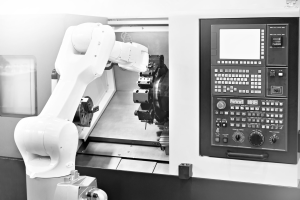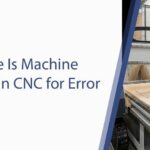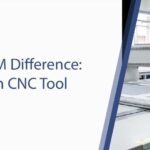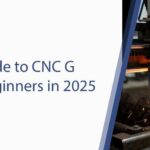The Future Role of Robotic Technologies and CNC Machines
The integration of robotic technologies and CNC (Computer Numerical Control) machines is creating a revolution in the manufacturing world.
The collaboration between these two powerful technologies makes industrial production faster, more precise, and more efficient while reducing costs and improving quality. With the rise of Industry 4.0 and digitization, this integration is expected to become even more significant in the future.
The Role of CNC and Robots in Modern Manufacturing
CNC machines play a crucial role in producing complex shapes and precision-machined parts. However, the advantages provided by robots have become indispensable for increasing efficiency at every stage of the manufacturing process.
- Material Handling: Robots quickly and accurately load raw materials into CNC machines and unload processed parts. This process saves time and minimizes human errors.
- Continuous Production: Robots continue to work even during shift changes, preventing production line stoppages.
- Multi-Process Management: Robots that can operate multiple CNC machines simultaneously make production lines more flexible and efficient.
Digitization and Future Trends
The rise of Industry 4.0 and digitization has elevated the integration of robotic technologies and CNC machines to a new level. These two technologies are becoming smarter and more efficient, supported by features such as data sharing, analysis capabilities, and autonomous decision-making.
Artificial Intelligence (AI) and Predictive Maintenance
Robots, supported by artificial intelligence, analyze production processes and can predict signs of machine failure before they occur. By detecting wear patterns and mechanical stress points, robots can inform when maintenance is required before machines break down. This type of predictive maintenance prevents production disruptions and reduces costs.
In industries such as automotive and electronics, where continuous production is essential, AI-powered robots help prevent unexpected breakdowns on the production line, increasing efficiency. Predictive maintenance extends the lifespan of machines and ensures operational continuity for businesses.
Internet of Things (IoT) Integration
With IoT, CNC machines and robots can share real-time data with each other. This connection serves as an efficient tool for optimizing manufacturing processes. For example, if a CNC machine overheats, robots can detect this and notify other machines, automatically adjusting the processes.
IoT integration enables quicker interventions in production processes and allows for optimization. This helps detect potential issues early, preventing more significant failures. Additionally, collecting and analyzing production data contributes to making processes more efficient.
Autonomous Operations
Autonomous robots can analyze bottlenecks on the production line, detect inefficiencies, and continue operations seamlessly. This is especially beneficial in large manufacturing facilities, where time and cost savings are critical. Robots perform routine tasks without manual intervention, increasing the efficiency of production lines.
For example, if a robot detects a slowdown in material feeding, it can make speed adjustments or notify maintenance teams if a mechanical fault occurs. This capability ensures the production line continues to operate at high efficiency and helps achieve production targets.
Autonomous robots also offer flexibility in manufacturing processes as they can adapt instantly to demand changes. This is particularly useful in sectors like aerospace, automotive, and consumer electronics, where demand can fluctuate significantly.
Energy Efficiency and Sustainability
Robotic technologies play a vital role in achieving energy savings and environmentally friendly production goals.
- Energy Saving: Robots work with optimized movements, minimizing energy consumption. This reduces environmental impact and lowers costs.
- Waste Management: Waste produced by CNC machines is sorted by robots and integrated into recycling processes, contributing to sustainable manufacturing goals.
The Future of the Industry
The integration of robotic technologies with CNC machines is making manufacturing processes faster, more precise, and more sustainable. The combination of these two technologies offers operational efficiency, high quality, and flexibility for businesses. With support from AI, IoT, and autonomous systems, manufacturing processes will become even smarter in the future.
These developments present significant opportunities not only for large manufacturing plants but also for small and medium-sized enterprises. The innovations provided by robotics and CNC technologies will continue to shape the future of the industry.
Contact Us:
- E-Mail: info@radonix.com
- Phone: +90 (553) 920 5500











